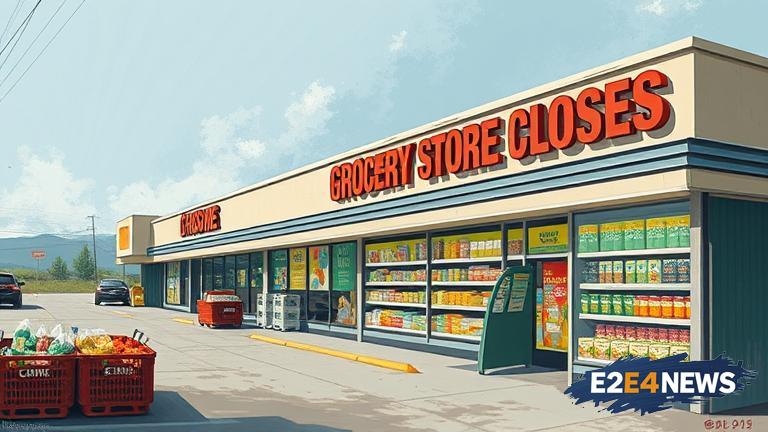The closure of grocery stores across the country has sparked widespread concern among consumers, who are now facing reduced access to essential goods and services. However, this trend is not a surprise to many, as it is a direct consequence of the policies implemented by politicians. The constant demands for higher minimum wages, increased regulations, and rising taxes have taken a toll on the retail industry, making it difficult for grocery stores to operate profitably. Many politicians have been vocal about their support for these policies, claiming that they will benefit the economy and improve the lives of workers. However, the reality is that these policies have led to increased costs for retailers, which have been passed on to consumers in the form of higher prices. As a result, many grocery stores have been forced to close their doors, leaving communities without access to basic necessities. The impact of these closures is far-reaching, affecting not only the employees who lose their jobs but also the local economy. The loss of a grocery store can have a devastating effect on a community, leading to a decline in property values, reduced foot traffic, and a decrease in overall economic activity. Furthermore, the closure of grocery stores can also have a disproportionate impact on vulnerable populations, such as the elderly and low-income families, who may not have access to alternative forms of transportation or may be unable to afford the higher prices of remaining stores. The politicians who have advocated for these policies must take responsibility for the consequences of their actions. They have been warned repeatedly about the potential impact of their demands, but they have chosen to ignore these warnings and push forward with their agendas. The result is a retail industry that is struggling to survive, with many grocery stores being forced to close their doors. The closure of grocery stores is not just a local issue, but a national problem that requires a comprehensive solution. Politicians must take a step back and reassess their policies, considering the potential consequences of their actions. They must work to create an environment that is conducive to business growth and development, rather than one that is hostile to retailers. This can be achieved by reducing regulations, lowering taxes, and implementing policies that support the retail industry. Additionally, politicians must also consider the impact of their policies on vulnerable populations and work to create solutions that address the needs of these communities. The closure of grocery stores is a wake-up call for politicians, who must now take action to address the consequences of their policies. They must work to create a more business-friendly environment, one that supports the growth and development of the retail industry. By doing so, they can help to prevent further closures and ensure that communities have access to the goods and services they need. The time for action is now, and politicians must take responsibility for their role in the closure of grocery stores. They must work to create a better future for the retail industry, one that is characterized by growth, development, and access to essential goods and services. The fate of the retail industry hangs in the balance, and it is up to politicians to take the necessary steps to ensure its survival. The closure of grocery stores is a symptom of a larger problem, one that requires a comprehensive solution. Politicians must take a holistic approach to addressing the issues facing the retail industry, considering the impact of their policies on businesses, employees, and consumers. By doing so, they can help to create a more sustainable and equitable retail industry, one that benefits everyone involved. The future of the retail industry is uncertain, but one thing is clear: politicians must take action to address the consequences of their policies and create a more business-friendly environment. The closure of grocery stores is a call to action, one that requires politicians to take responsibility for their role in the decline of the retail industry. They must work to create a better future for the industry, one that is characterized by growth, development, and access to essential goods and services.
